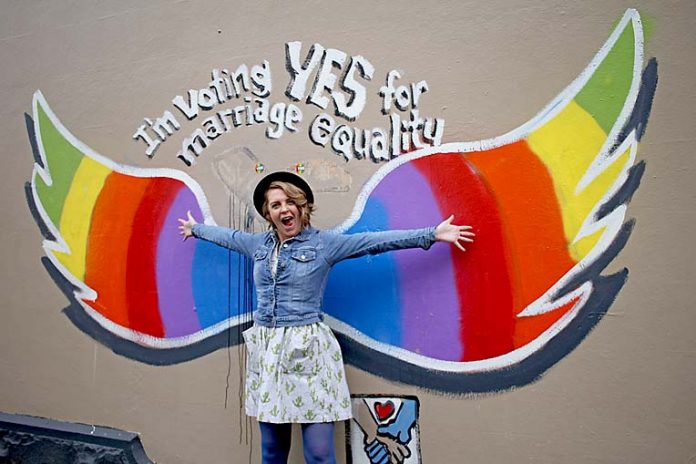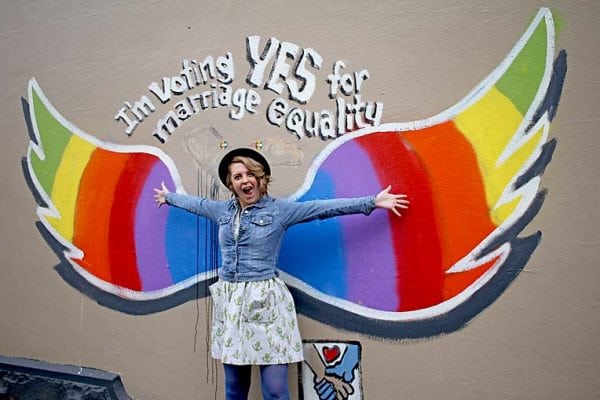

WITH a record proportion of Australians enrolled to vote in the Australian Marriage Law Postal Survey, marriage equality campaigner Ivy Sutherland is urging people to tick yes in support of same sex marriage.
More than 16 million Australians have started to receive voting papers with a deadline of November 7 to have their say on whether the law should be changed to allow same-sex couples to marry.
While legal rights and protections for same sex couples have undergone a suite of reforms in recent years, the institution of marriage remains a significant difference.
Ms Sutherland said broadening the scope of marriage to include same sex relationships was an important step towards true equality for all Australians.
“Feeling included is such an important part in all of our lives, not only socially, but also for our mental health,” she said.
“The simple act of allowing marriage for all brings together our communities to say we don’t allow people to feel excluded or bullied and we don’t agree that settling for second best is an option.
“People want to live their lives under the term ‘marriage’, not a civil union.
“Happily married heterosexual couples get to share a life-long bond though their vows and have that acknowledged by the law and others.
“It’s truly our loss to not encompass the married title to all whom seek that special opportunity once they’ve found the one.”
Ms Sutherland said continuing the current definition of marriage as the union of a man and a woman to the exclusion of all others reinforced inequality and discrimination.
Compared to the general population, lesbian, gay, bisexual, transgender and intersex (LGBTI) people are more likely to attempt suicide or engage in self-harm in their lifetime.
Lesbian, gay and bisexual individuals aged 16 and over are nearly six times more likely to currently meet the criteria for a depressive episode.
“Many people still see being attracted to the same sex as something they should be ashamed of,” she said.
“This causes anxiety, depression and anger that can be ever lasting.
“We need to stomp that out at the source.
“With the rates of suicide and drug addiction we see today, this law change will be a real step in combating the self-hate that’s perpetuated by others saying that our views and voices are not as relevant to greater Australia.”
In addition to the psychological benefits, Ms Sutherland said the formal recognition of same-sex marriage would deliver a boost to the local and national economy.
In 2015, one of Australia’s national banks calculated the expenditure on same sex weddings could add at least $500m to the economy in the first year alone.
“These couples will be using small business to purchase their flowers, buy their suits, have their hair done and so on,” she said.
“It’s a real win-win.”
Ms Sutherland encouraged community members on the LGBTIQ spectrum who may be experiencing hardship as a result of the debate to reach out, talk and access local and national services.
“Being gay, bisexual, lesbian or transgender or sitting anywhere under the queer umbrella should not make you feel isolated,” she said.
“Celebrating your sexuality and not being hidden helps with the stigma of being queer in small towns.”







